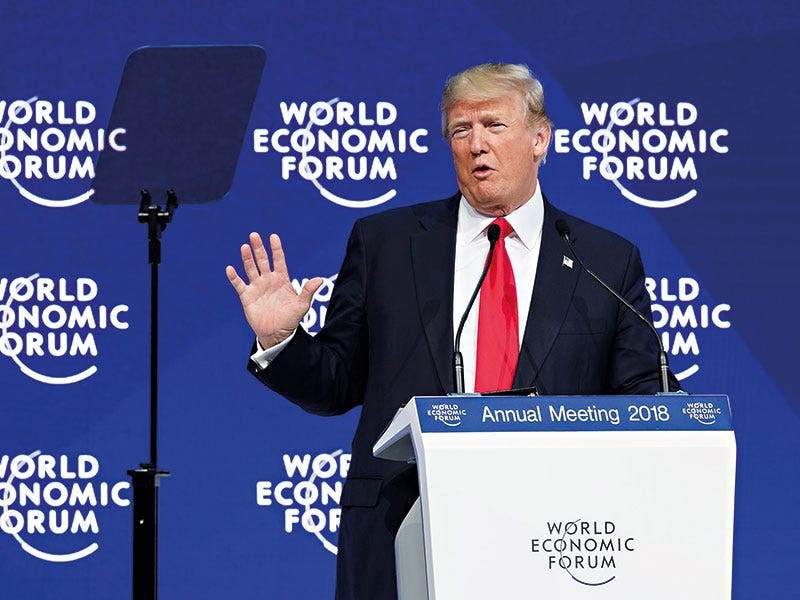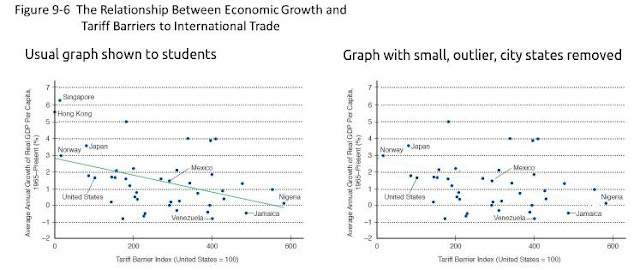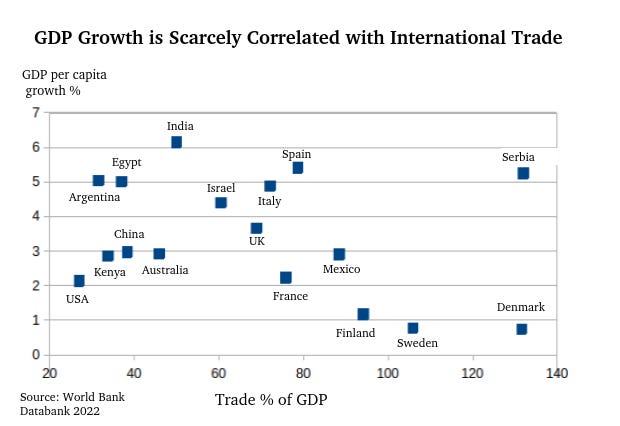I have recently seen several articles on Substack that extol the virtues of Free Trade. The articles by Ed West, Against Critical Trade Theory and the article by Noah Smith actually hold that trade deficits are not a problem.
A trade deficit occurs when the value of goods and services that you buy from abroad exceeds the value of your exports. Countries that are happy with long term trade deficits end up accumulating debt or selling their assets to foreigners to pay for imports.
Noah Smith rightly says that importing more than you export is like buying goods on your credit card. He is aware that borrowing money to buy goods eventually results in interest payments and the sale of assets but is happy with this because the indebted country could always become bankrupt and start again. His view is supported by economists, as this review of the US deficit confirms:
"According to our static analysis, the main welfare cost of eliminating the current account deficit is simply the loss of the free lunch, i.e. the loss of goods that we currently consume but do not pay for until later. That cost is on the order of six percent of GDP." Unbalanced Trade, Robert Dekle et al (2007)
So the US trade deficit makes Americans 6% per annum richer now at the expense of their children who will eventually pay back the cumulative debt with interest or go broke. The Internationalists, who favour trade deficits, do not think in terms of bequeathing better countries to their children so this makes sense to them.
Noah Smith is not a complete fan of trade deficits, he also says: “So if you think manufacturing is important above and beyond its contribution to GDP (as I do), then the trade deficit with China is probably an important thing to address.”
So Noah Smith knows that trade deficits lead to interest payments that create a continuous drain on an economy and that trade deficits can destroy entire areas of a country’s industry but thinks they are OK.
Noah Smith did point out that trade deficits do have problems. In contrast Ed West derides ‘zero sum thinking’ on international trade. He seems to believe that international trade is always a good thing. His article begins with two children receiving chocolates and one child turning down one chocolate if this means the other child gets two chocolates. Of course, at a national level, the massive oversupply of cheap foreign chocolate would suppress the domestic manufacture of even one chocolate.
One might argue that once chocolate makers are put out of business everyone can shift into insurance sales. However, this is not always possible and many of the previous chocolatiers will be employed at low wages in foreign owned factories that operate as warehouses for foreign produced chocolate. Trade is indeed a zero sum game. There are winners and losers. If there is a trade deficit the immediate consumers of goods and services are winners and the workers and societies where they live are the losers. Only the international traders, the multinational corporations, always benefit from trade, whether in deficit or surplus.
I have given the many reasons for being sceptical of free trade in Tariffs are Necessary: Part 2, however there is one further point that needs to be made. Persistent trade deficits (in goods and services) lead to Current Account Deficits and this leads to the sale of national assets to maintain the value of the country’s currency. In the UK there has been a huge sale of bonds, property and businesses to foreigners to pay for the Current Account Deficit. This sale impinges on every aspect of national life from the price of rentals to wage levels.
Both Ed West and Noah Smith seem to be Internationalists. Ed West says: “Zero-sum-thinking is one of the hallmarks of ‘populism’, in its most derogatory sense”. It would be much clearer if he had used ‘Nationalism’ instead of populism. Nationalists are those who desire independent nation states with their own cultures. They want to control their economies beyond acquiring goods at the lowest possible price. They also desire a ‘strategic economy’ because this allows a nation to defend itself and persist. Internationalist free traders have the opposite idea of the future of humanity: a uniform consumerist culture spanning the globe with control imposed by total surveillance.
Last but not least, there is no evidence that, in the long run, tariffs damage GDP growth or the volume of International trade inreases GDP (in developed countries a small volume is adequate). As will be seen from the graphs below, most countries can make their own products. Multinationals are not needed.
The Details
Tariffs are not correlated with economic growth:
(Adapted from Miller, R (2008). Economics Today: Global Economic Development)







I live in central London much of which is owned by Qatar or other Middle Eastern states. My water comes from a company owned by foreigners (that is near bankrupt as it borrowed to pay dividends abroad) and my electricity comes from overseas when inter-connectors have to be used; the reality of trade and current account deficits.
The UK was put up for sale some time ago and we have been selling off the family silver every budget cycle. The problem with that is one eventually runs out of things to sell. We may be approaching that point.